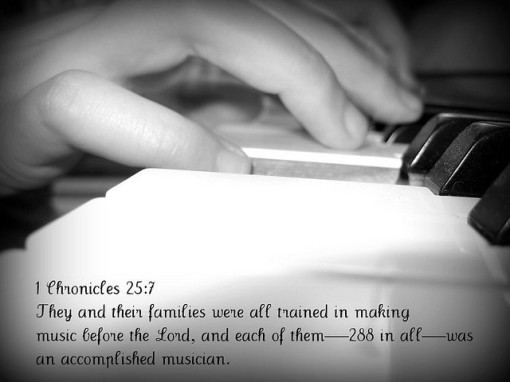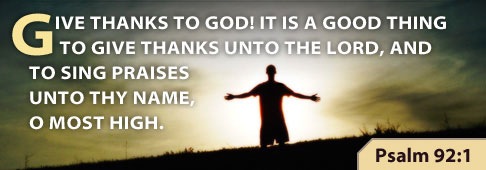DAY TWO HUNDRED AND TWENTY : 1 Chronicles 26 v. 20 – 27 v. 34; 1 Corinthians 14 v. 1 – 21; Proverbs 19 v. 13 – 22

1 CHRONICLES
The treasurers and other officials – there follows a list of the fellow Levites who are put in charge of the treasuries. Ladan’s descendants were in charge of the temple treasuries; Shubael, descended from Moses’ son, Gershon, was the officer in charge of the treasuries;
Shelomith and his relatives are put in charge of the treasuries dedicated by King David (plunder taken in battle) and Samuel;
Kenaniah and sons became officials and judges over Israel;
Hashabiah and his relatives were in charge of the Lord’s work in Israel, west of the Jordan (Jeriah kept the family records);
Army divisions – the heads of the Israelite families are listed (commanders of thousands, hundreds and the officers) – each division consisting of 24,000 men.
Jashobeam in charge of the first division (chief of all the army officers for the first month);
Mikloth in charge of the second division;
Benaiah in charge of the third division (‘the mighty man among the Thirty and over the Thirty’);
Asahel in charge of the fourth division;
Shamuth in charge of the fifth division;
Ira in charge of the sixth division;
Helez in charge of the seventh division;
Sibbecai in charge of the eighth division;
Abiezer in charge of the ninth division;
Maharai in charge of the tenth division;
Benaiah (the Pirathonite) in charge of the eleventh division;
Heldai (the Netophathite) in charge of the twelfth division
a few -ites I’d not heard of before in that list…..
Officers and the tribes – Israel’s officers are listed: Eliezar over the Reubenites; Shephatiah over the Simeonites; Hashabiah over the Levites; Zadok over the Aaronites; Elihu over Judah; Omri over Issachar; Ishmaiah over Zebulun; Jerimoth over Naphtali; Hoshea over the Ephraimites; Joel over the half-tribe of Manasseh; Iddo over the other half-tribe of Manasseh; Jaasiel over Benjamin; Azarel over Dan.
Those age 20 or under aren’t taken; Joab begins the count of the men but didn’t finish – God is angered by this, and the number is not added into King David’s annals / records.
The king’s overseers – a few other responsibilities are listed:
Azmaveth is put in charge of the royal storehouses; Jonathan is put in charge of the outlying storehouses; Ezri is put in charge of the field workers; Shimei is put in charge of the vineyards; Zabdi is put in charge of the wine vats; Baal-Hanan is put in charge of the olive and sycamore-fig trees; Joash is put in charge of the olive oil; Shitrai is put in charge of the herds of Sharon; Shaphat is put in charge of the herds in the valleys; Obil is put in charge of the camels; Jehdeiah is put in charge of the donkeys; Jaziz is put in charge of the flocks.
All these were officials overseeing King David’s property.
There’s a counsellor – Jonathan; Jehiel takes care of the king’s sons; Ahithophel, another counsellor; Hushai, the king’s friend.
Joab commands the royal army.  1 CORINTHIANS
1 CORINTHIANS
Apostles of Christ – Those entrusted with planting God’s churches are called Apostles, whom Paul describes as, ‘servants of Christ, and as those entrusted with the secret things of God.’
The must prove themselves faithful. They must live their lives conscious that it is ‘the Lord who judges’, not human beings.
‘He will bring to light what is hidden in darkness and will expose the motives of men’s hearts. At that time each will receive his praise from God.’
It is clear that, as co-workers with Christ, we must seek His approval and praise far above any endorsement or praise from people.
Paul has used himself and Apollos as an example of how not to ‘take pride in one man over against another’. Everything good we have, has been passed on, or gleaned, from someone else.
Paul reminds them of the dangers of pride and materialism. He sets in contrast their wealth, riches, pride, living like kings, alongside the lifestyle of the apostles ‘we are fools for Christ, but you are so wise in Christ! We are weak, but you are strong!…To this very hour we go hungry and thirsty, we are in rags, we are brutally treated, we are homeless…we have become the scum of the earth, the refuse of the world.’
Paul is warning them, as their ‘father through the gospel’, to get their perspective right.
As in a true model of discipleship, Paul urges them to imitate him – in our discipleship we must be inspired by those ‘ahead’ of us, and we must be inspiring others following on. Paul lets them know that he is sending Timothy (‘my son’) to them, ‘He will remind you of my way of life in Christ Jesus, which agrees with what I teach everywhere in every church’.
interesting to note that Timothy will be a further example to them of ‘the way of life in Christ Jesus’ – it is the way the truths of the faith are lived out daily which need imitating
Paul is disturbed by the pride and arrogance of some within the fellowship, and pledges to be with them as soon as the Lord permits, ‘and then I will find out not only how these arrogant people are talking, but what power they have.’
Power can be used well or poorly – ‘the kingdom of God is not a matter of talk but of power’.
PROVERBS
Dads are ruined by foolish sons.
An argumentative wife is like a constantly dripping tap.
Homes and money can be inherited from our parents,
but a wife full of wisdom and integrity is a gift from the Lord.
Being lazy means lots of deep sleep – he who shirks work is always hungry.
He who is obedient when instructed protects his life – those full of contempt will perish.
He who is generous to the poor blesses the Lord – there will be rewards (in heaven) for such kindness.
Teach your children a disciplined life – there is great hope in such a way of living –
don’t speed their demise by your neglect.
Angry men will pay a heavy penalty – beware getting caught in their traps, again and again.
Seek advice, garner it, and be accountable to others – this is the way to true wisdom in the end.
People have so many plans in their heart – but it is God’s purpose which prevails.
People crave a love which endures, which never fails – admit it – it’s better to be in want than to be a liar.



